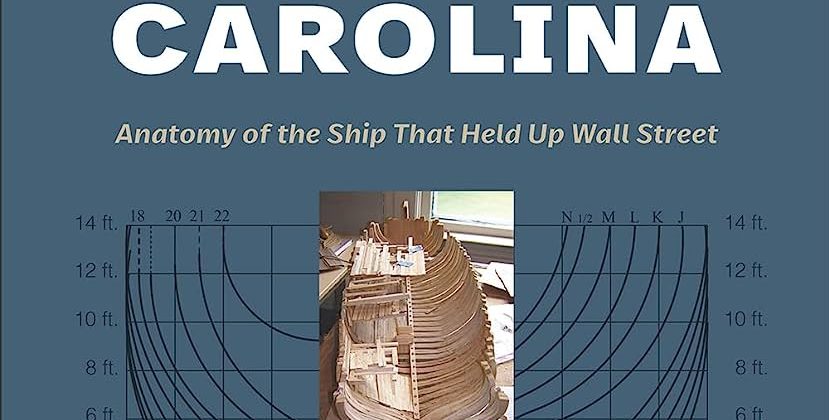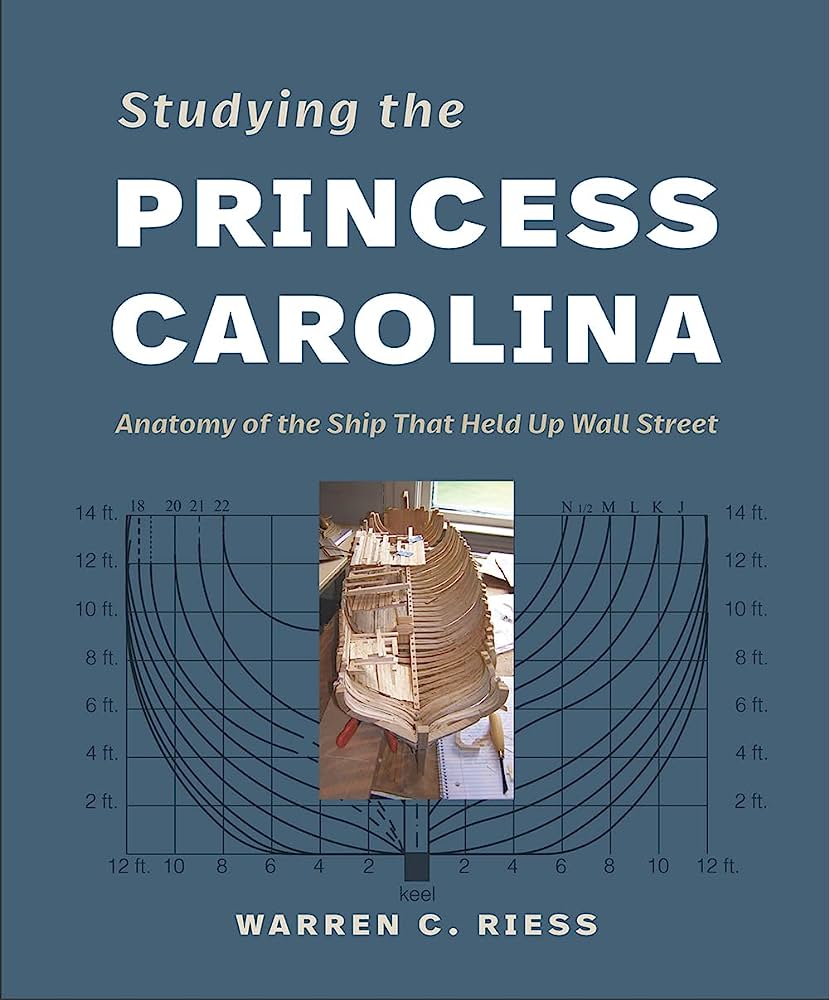

Warren C. Riess is Associate Research Professor Emeritus at the University of Maine. This interview is based on his new book, Studying the Princess Carolina: Anatomy of the Ship That Held Up Wall Street (Texas A&M University Press, 2023).
JF: What led you to write Studying the Princess Carolina?
WR: First, for background this is the second of two volumes about our investigation of a colonial merchant ship’s remains. The first volume was the whole story written for the general public and scholars who are not maritime specialists. The new, second volume is for maritime specialists. In it I present my interpretation only in “technical terms.” Yes readable I hope, but it probably would put most people to sleep if they read beyond page 2. The two books were supposed to be published within a year, but the pandemic hit just after I submitted the second manuscript.
Publishing our findings was always part of my research design when I learned I would be the principal investigator for the site. Archaeology is different from most sciences because no data collection can be reproduced. Unlike physics or chemistry, there is no experiment that one can replicate. Unlike biology or survey-based data collection, one can’t take another sample. Archaeologists get one shot at recording everything that might answer questions before they destroy each layer of a site to get to the next. Therefore it is imperative that archaeologists fully research ahead of time, record by every means possible, analyze, interpret, and finally publish everything they can from the data. Otherwise they’ve destroyed an important, one-of-a kind resource for nothing.
JF: In 2 sentences, what is the argument of Studying the Princess Carolina?
WR: Until I analyzed and interpreted this ship’s remains, no one knew how seventeenth- and eighteenth-century shipwrights designed the merchant ships that were crucial to build the great European empires. In these two volumes I present how we excavated and recorded the site, conserved the artifacts, researched the ship’s history, and then present how I think the shipwright designed and built the ship.
JF: Why do we need to read Studying the Princess Carolina?
WR: I wrote the first volume for people who are not maritime specialists. It’s a detective story from which the reader will learn about the processes of maritime (or “nautical”) history and archaeology—how scholars work in the field, archives, and laboratories to discover the past. The second volume offers a close look at the design and construction techniques I believe the builder used to create the ocean-going ship in 1717.
JF: Why and when did you become an American historian?
WR: I decided in 1974, a few years after college, to become an American historian. I had been in physics and chemistry, but found I was more interested in people than in things. I started graduate school the next year.
JF: What is your next project?
WR: Now I am writing/editing a similar two-volume publication about the site investigation of the American Revolutionary War privateer Defence. Prof. David Switzer was the director of that project, but died before he could fully publish it. I was a graduate student who worked on the project for seven years, during the field seasons in the 1970s. After Dr. Switzer died I volunteered to pick up the task once I finished publishing all my projects.
I am writing the first volume as a “social history” of the people related to the ship: the merchants who ordered it built and owned it, foresters, shipbuilders, riggers, crew, and finally the archaeologists. The second volume will be a technical anthology wherein each specialist who conserved and analyzed the hull and artifacts will write their own chapter. I will be the editor of that volume, writing only two chapters in it.
JF: Thanks, Warren!